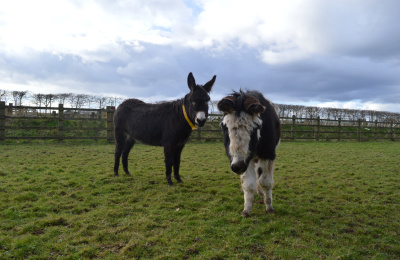Research undertaken by international animal welfare charity, The Donkey Sanctuary, in collaboration with Christ Church and the University of Portsmouth, has contributed to changes in the Defra Code of Practice, to include the need for shelter for donkeys.
The findings from the first part of the project were published in the Equine Veterinary Journal last year, which found that donkeys, and to a lesser extent mules, are less able than horses to adapt to colder, wetter climates and therefore require additional protection in the winter to meet their welfare needs.

Since 2015 The Donkey Sanctuary has been working in collaboration with Dr Britta Osthaus, Senior Lecturer in Psychology at Canterbury Christ Church University and Dr Leanne Proops, Senior Lecturer at the University of Portsmouth, both specialists in animal behaviour and cognition.
The report indicates that donkeys’ coats do not change significantly across the seasons and that their coats were significantly lighter, shorter and thinner than that of horses and mules in winter. In contrast the coats of horses and ponies changed significantly between seasons, growing much thicker in winter.

Dr Faith Burden, Director of Research and Operational Support at The Donkey Sanctuary, said: “For many years it has been the ‘common sense’ advice given by The Donkey Sanctuary to ensure that donkeys and mules are given the right protection from our cold winters. This study now provides us with scientific evidence to show why the welfare needs of donkeys and mules differ slightly to those of horses and ponies, and how we can act to give them better protection from the elements.”
Dr Britta Osthaus, Senior Lecturer in Psychology at Christ Church, said: “Despite their fluffy looks, donkeys are not as insulated as ponies. Although they are much hardier in other aspects, they need more access to water and windproof shelter. It’s fantastic to see that our research has influenced national guidelines to improve animal welfare.”


